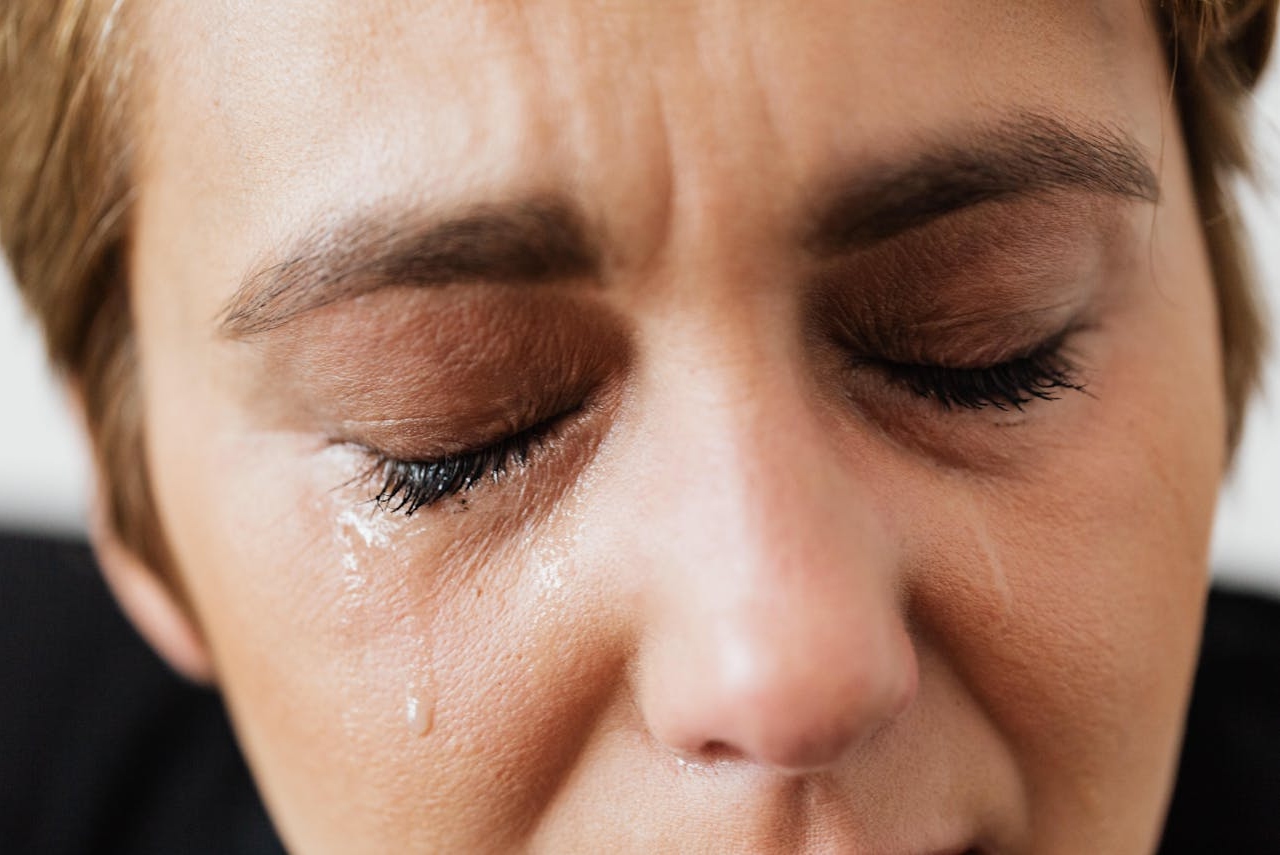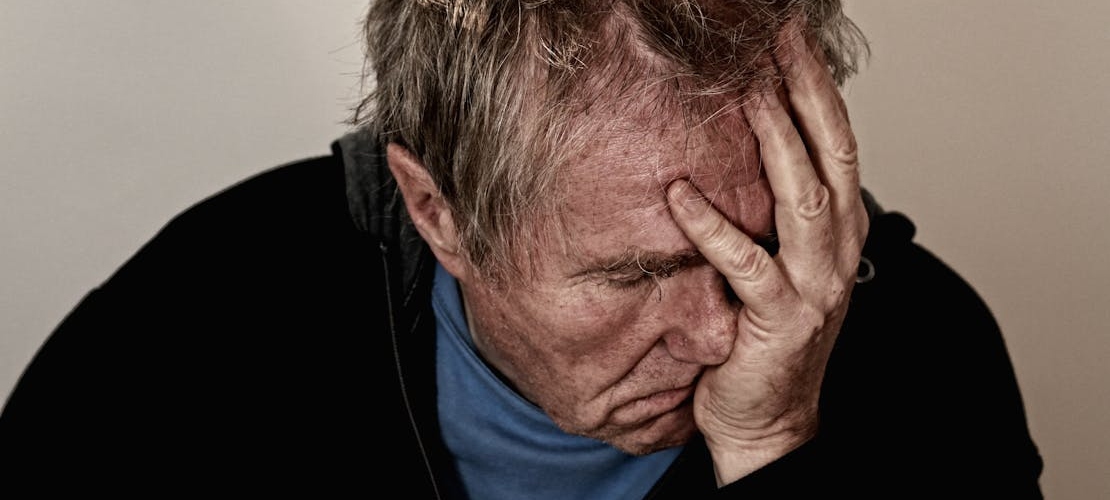Spotting the Early Addiction Relapse Warning Signs in Yourself or a Loved One

While relapsing during your sobriety is not unusual and is considered a normal part of the recovery process, there’s much that can be done to avoid relapses. They typically do not occur suddenly, which is why it’s important to recognize the early addiction relapse warning signs. A timely reaction can prevent relapse from ever taking place and save you from going through rehab again. We at Tranquility Recovery Center strive to support not only your recovery but also your lifelong sobriety. Our substance abuse treatment in San Fernando Valley will, therefore, help you overcome current struggles and educate you on how to fight any future challenges.

In this text we will share our knowledge on relapse, its stages, and warning signs. You will learn how to spot relapse warning signs in yourself and your loved ones, as well as how to ensure the right support. You can always reach out to us for more information and advice on how to proceed if a relapse takes place.
Understanding the Stages of Relapse
Relapse does not happen overnight. It unfolds in stages, each with its own addiction relapse signs, providing many opportunities for intervention. So, what are the stages of relapse addiction? There are three phases that explain progression to a stage where you need drug rehab Sun Valley CA again.
- Emotional relapse is the first stage of relapse. At this stage, you’re not thinking about using, but your emotional state and self-care increase the risk. You might feel irritable and anxious, or you might start isolating yourself.
- Mental relapse is the following stage. This stage is when the internal conflict begins. One part of you wants to remain sober, and you make an effort to do so. The other part starts romanticizing your past substance use and even starts planning or fantasizing about using it again. Typically, cravings begin during this stage.
- Physical relapse is the final stage. This stage is when you actually start using it again. Misusing or abusing substances or alcohol even once counts as a relapse.
Recognizing early warning signs of relapse in the emotional or mental stage of relapse is an imperative, as these are the stages when prevention is possible and efforts to prevent it are most effective.
Common Early Warning Signs in Yourself
It might be challenging to spot signs of addiction relapse in yourself, but if you are in recovery, you should pay attention to subtle hints. Observing shifts in your thoughts and behavior can help you prevent relapse and the emotional toll it can bring about. Here are some signs that indicate a potential relapse in addiction:
- Increased stress and emotional instability: You might feel constantly irritable, sad, or restless; These feelings can be a sign of emotional relapse.
- Mood swings: Emotional distress that manifests as anxiety or depression is one of the most typical alcohol and drug relapse signs.
- Isolation or withdrawal from your social circle, especially your support system: Pulling away from friends, family, or peers supporting you in support groups can all be warning signs of relapse addiction.
- Romanticizing past substance use: you might start thinking that those times were not that bad or even reminiscing about good old times. These types of thoughts are strong indicators of potential mental relapse.
- Skipping your therapy sessions: Neglecting your sobriety plan and skipping your recovery obligations can easily lead back to maladaptive coping mechanisms, such as substance abuse.
- Changes in daily habits: Physical changes like sleep disturbances, changes in appetite, or hygiene often accompany emotional and mental relapse and should therefore be taken as addiction relapse warning signs.
Learning to recognize the addiction relapse warning signs is one of the main tasks during the relapse prevention program California at Tranquility Recovery Center. We aim to equip you with tools and resources that will also help you act once you spot drug or alcohol relapse signs.

Warning Signs in a Loved One
It is arguably easier to recognize signs of addiction relapse in others because you are not making excuses for their sudden changes in mood or behavior. Moreover, you might be more objective when assessing their condition. When you spot addiction relapse warning signs and you think about how to help an alcoholic or drug addict in recovery, remember that your awareness and timely support can make all the difference in their lives.
Alcohol and drug relapse warning signs in others can include:
- Emotional changes: Your loved ones may look irritable, show dramatic shifts in their demeanor, or start acting impulsively.
- Secretive or avoidant behavior and communication: If your loved ones become evasive about their schedules or whereabouts, take note.
- Reconnecting with people from the past associated with use: it can be a concerning sign if suddenly your loved ones start reconnecting and socializing with people from their circle when they were using.
- Neglecting responsibilities and routines: Suddenly missing work, ignoring family duties, or even giving up on self-care can all be red flags of something happening.
- Defensiveness when asked about their condition and recovery: When your loved ones become angry or avoidant in response to discussions about recovery, rehab, or therapy, it signals that something is wrong.
It’s often difficult to find peace with the fact that your loved one might be relapsing. If you’re worried about a loved one’s mental health, talk to them about it and suggest they seek professional help.

How to Respond to Early Warning Signs
The best thing you can do for yourself or your loved ones once you recognize addiction relapse warning signs is to take proactive and compassionate action as soon as possible. There are many things you can do to help mend the situation and avoid or at least reduce the effects of relapse.
Here are several actions you can take for your own benefit:
- Be self-aware and take an honest reflection. Note your emotional shifts and negative thinking patterns. Notice when you feel disconnected from your recovery and sobriety path. Several simple techniques can help you, including journaling, mindfulness, or talking to a trustworthy person for a bit of clarity.
- Reach out for support. You can call your sponsor or speak to your therapist. There are different support groups that can help you as well. Having even a single honest conversation about your struggles can prevent those issues from becoming deeper and more distressing.
- Recommit to your recovery path. It might be challenging, but make an effort to reengage with positive habits like daily meetings, healthy eating, exercise, consistent sleep patterns, and psychotherapy. Introducing structure and balance into your life can help prevent the development of maladaptive coping mechanisms, such as alcohol and drug use.
Similarly, you can take action if you know these signs of relapse in your loved ones:
- Communicate openly and assertively. Showing empathy instead of blame and using ¨I¨ statements with a calm tone can set an environment filled with peace and trust. Be sure to express your concerns instead of accusations.
- Actively listen and offer your support. Be available and don’t show judgment. Feeling heard and seen can go a long way.
- Encourage seeking professional help. Reconnecting with a counselor or, in case of physical relapse, enrolling in an inpatient detox San Fernando Valley can be just the help they need.

Professional Help and Prevention Strategies
While relapse is a normal part of a recovery journey, it’s best that it’s avoided. This is why relapse prevention often has a special place in recovery. For instance, research shows that those who receive professional help for fighting alcohol abuse have a lower likelihood of relapse.
Recognizing triggers, managing cravings, and staying committed to sobriety are some of the crucial elements you’ll be addressing in individual therapy for addiction treatment. Cognitive behavioral therapy (CBT) is especially effective. It teaches you to identify and challenge the thoughts and behaviors that may lead to a relapse. Because it addresses your specific triggers and challenges, the program is highly individualized and powerful. It provides you with a personalized strategy to help you stay on the right track.
Prevention Strategies
A psychotherapist can rely on several different tools and strategies that help you build resilience and teach you to spot addiction relapse warning signs. These approaches can include
- Role-playing difficult scenarios: These are especially important when expecting to be in an environment that will expose you to substances you used to use. You might find yourself in a situation where alcohol or drugs are offered to you, and it’s important to know how to say no. The importance of setting healthy boundaries is so significant that we included them in the earliest stages of recovery, such as during San Fernando benzo detox.
- Mindfulness training: Stress is often at the basis of relapse. A lack of healthy coping mechanisms and techniques to address stress can lead to a relapse. Learning mindfulness techniques that allow you to experience thoughts and emotions without them jeopardizing you can help you in various situations and support you in staying on the right track.
- Lifestyle planning: This approach refers to developing a plan for healthy nutrition, sleep hygiene, and daily routines that would support your overall health
All of these approaches can be implemented into your rehab or be a part of an aftercare plan. Aftercare programs provide a critical bridge between treatment and your usual environment. The different types of support you receive at this stage help reduce the risk of relapse. Additionally, these types of support contribute to establishing a stable recovery path. Professionals at your drug detox center Los Angeles will define the best course of action that will increase your chances of ensuring lifelong sobriety.

React to the Addiction Relapse Warning Signs
We understand that relapse can significantly impact your emotional well-being and motivation to maintain a healthy lifestyle. But this can be avoided if you learn to recognize the early addiction relapse warning signs. Once you do, be sure to look for professional support, as every life challenge is easier to overcome when you don’t feel alone in it.
Tranquility Recovery Center can be your trusted partner in achieving lifelong sobriety. Call us and ensure all the support you need.
You Have Questions
We Have Answers
At Tranquility Recovery Center, we offer treatment for a wide range of addictions, including alcohol, opioids, prescription drugs, and illicit substances. Our team tailors each program to meet individual needs, focusing on both the physical and emotional aspects of recovery.
At Tranquility Recovery Center, we offer treatment for a wide range of addictions, including alcohol, opioids, prescription drugs, and illicit substances. Our team tailors each program to meet individual needs, focusing on both the physical and emotional aspects of recovery.
At Tranquility Recovery Center, we offer treatment for a wide range of addictions, including alcohol, opioids, prescription drugs, and illicit substances. Our team tailors each program to meet individual needs, focusing on both the physical and emotional aspects of recovery.